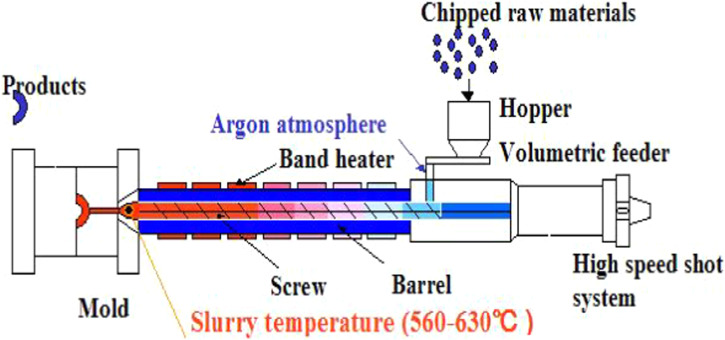Introduction:
Aluminum casting molds play a crucial role in the production of high-quality aluminum components. These molds determine the final shape, size, and surface finish of the casted parts. Therefore, it is essential to create molds that ensure superior production outcomes. This article will discuss various factors and techniques involved in the creation of high-quality aluminum casting molds.
Selection of Mold Material:
The choice of mold material greatly impacts the quality of the casted components. Aluminum alloys, such as H13, P20, and 7075, are commonly used for aluminum casting molds due to their excellent thermal conductivity, high strength, and good wear resistance. These materials offer superior resistance to thermal fatigue and deformation, ensuring the longevity of the molds.
Design and Engineering:
The design and engineering of aluminum casting molds are critical to achieve high-quality production. The mold design should consider factors such as part geometry, gating system, cooling channels, and ejection mechanism. Advanced computer-aided design (CAD) software and simulation tools are used to optimize the mold design, ensuring proper filling, solidification, and cooling of the molten aluminum. This helps in minimizing defects like porosity, shrinkage, and distortion.
Precision Machining:
Precision machining of aluminum casting molds is essential to achieve the desired dimensional accuracy and surface finish. Advanced CNC (Computer Numerical Control) machines are utilized to accurately fabricate the molds, ensuring tight tolerances and excellent surface quality. Machining techniques such as milling, turning, and grinding are employed to create intricate features and complex geometries required for the final casted parts.
Surface Treatment and Coating:
Surface treatment and coating of aluminum casting molds enhance their durability and performance. Mold surfaces are often subjected to treatments like polishing, grinding, and shot blasting to remove any imperfections or rough spots. Additionally, coating techniques such as nitriding, hard chrome plating, or physical vapor deposition (PVD) are employed to improve wear resistance, reduce friction, and prevent corrosion. These surface treatments ensure smooth mold operation and prolong the mold’s lifespan.
Heat Treatment:
Heat treatment is another crucial step in the creation of high-quality aluminum casting molds. It involves controlled heating and cooling processes to modify the structure and properties of the mold material. Heat treatment techniques like annealing, quenching, and tempering are employed to improve the mold’s hardness, toughness, and thermal stability. Proper heat treatment enhances the mold’s resistance to thermal fatigue and prolongs its operational life.

Quality Control:
To ensure the production of high-quality aluminum casting molds, strict quality control measures are implemented throughout the manufacturing process. Advanced inspection tools such as coordinate measuring machines (CMM), optical scanners, and non-destructive testing techniques are used to verify dimensional accuracy, surface finish, and overall mold quality. Any deviations or defects are promptly identified and rectified to ensure the molds meet the required standards.
Conclusion:
Creating high-quality aluminum casting molds is crucial for superior production outcomes. The selection of the appropriate mold material, meticulous design and engineering, precision machining, surface treatment and coating, heat treatment, and rigorous quality control measures all contribute to the creation of molds that result in high-quality aluminum components. By following these techniques and best practices, manufacturers can achieve superior production and meet the ever-increasing demands of various industries.
-

- OEM die casting service metal components of macbook middle
-

- Thixomolding parts & components mobile phone middle board processed
-

- Custom-made die casting parts&comopnents for bicycle suspension fork for MTB
-

- Mangsíum álfelgur deyja-steypu Thixomolding málm bremsur
-

- Magnesíum álfelgur deyja-steypu Bílavarahlutir stjórnandi hús
-

- Magnesíum álfelgur þikómótandi deyja-steypu UAV hlutar

 0086-750-5616188
0086-750-5616188 +86 13392089688
+86 13392089688 sales@zhongmei-tech.com
sales@zhongmei-tech.com







